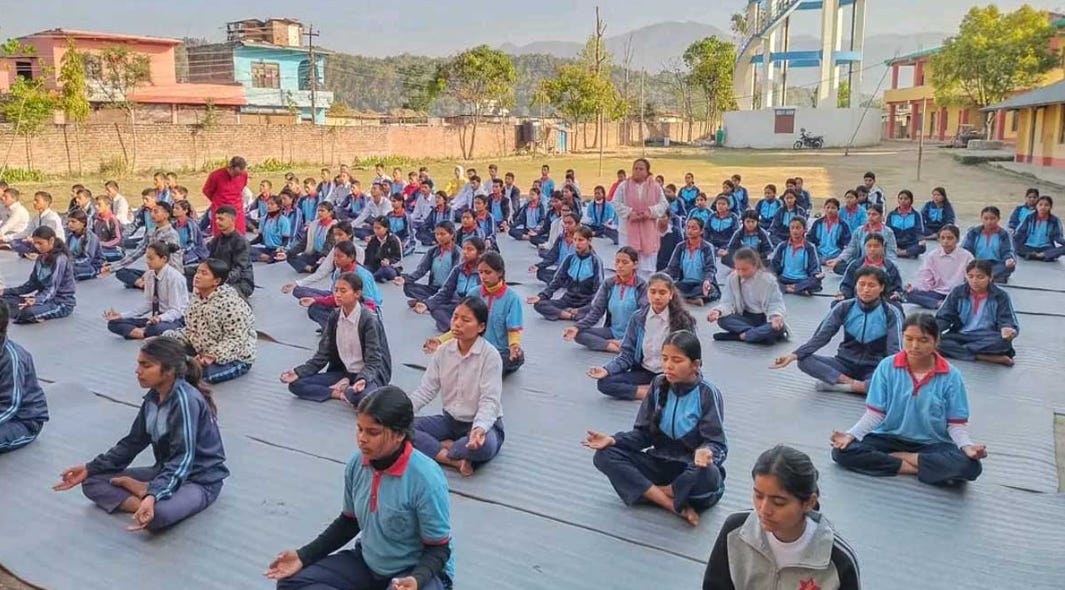The September GNC Review
Welcome to the Global Nursing Caucus' monthly newsletter! We hope you'll join us as we explore what's new in nursing around the world.
“Save one life, you're a hero. Save 100 lives, you're a nurse" –Unknown
Heading back to school!
As the new school year begins, it’s crucial to recognize the essential role that school nurses play in our educational system. Their expertise goes beyond basic first aid; they are pivotal in managing chronic conditions, providing mental health support, and ensuring that all students are ready to learn in a safe and healthy environment. In an era where the health needs of students are increasingly complex, school nurses serve as advocates and educators, bridging the gap between healthcare and education. Their work not only helps to keep students healthy but also contributes to better academic outcomes, reduced absenteeism, and overall school safety.
Vital Signs: Sharing stories from courageous nurses across the globe
In early July, Sabina Bharati, a school nurse in a remote part of Nepal’s Karnali province, had just settled into her station to begin her day when an eighth-grade girl came to her in tears. The girl felt so helpless, and so hopeless, that in the preceding days she had made more than one attempt on her life, she confessed to the nurse. Bharati encouraged her to talk – and felt a freeze steal over her nerves as she listened. The girl had been the victim of a horrible sexual attack. She was bleeding, and she was desperate. The nurse not only gave the girl medicine for the pain, but also, ultimately, helped her bring her aggressor before the law. The girl, who prefers to remain anonymous, told VaccinesWork that if there had been no school nurse on hand in her moment of need, she thinks she would have died by suicide.
Across Nepal, and indeed, in many countries, school-aged children’s needs for basic health care – whether physical and reproductive, or mental – are inadequately met. But schools themselves present an opportunity for efficient intervention. According to Nepali national data, 32% of the country's total population can be found in school. In consequence, Nepal’s government inaugurated the ‘One School, One Nurse’ program in Bagmati province in November 2018.
Right from inception, it offered two major advantages: bringing the health care establishment closer to large numbers of children, and creating jobs for Nepal’s nurses, a quarter of whom were unemployed in 2019. In the years since, the program has been extended to all provinces of the country, and now includes about 1,300 community schools.
Addressing reproductive health issues of children and adolescents has been another important role of Nepal’s school nurses. The nurses in the school not only provide free sanitary pads to menstruating girls, but also help them tackle any other problems related to their hormonal cycles. Both nurses and students report that, with the assistance of the school nurse, many girls feel more secure at school than at home during their periods. The government has also been able to leverage the program to distribute iron tablets against anemia.
Hira Niraula, head of the Nursing and Social Security Division of Nepal’s Department of Health Services, proudly told VaccinesWork that according to preliminary data from an ongoing study, the school dropout rate has drastically reduced in zones where the ‘One School, One Nurse’ program is operating successfully – particularly among girls.
Bala Rai, one of the pioneers of the school nurse program, shared her positive experience about the rapid dissemination of health information during last year’s dengue outbreak as well. According to her, the government can reach each and every family in the community via the school nurse. And, time and again, this strategy has been proven effective for creating public health awareness.
The Nepal Demographic and Health Survey (DHS) report for 2022 says that 25% of children below the age of five are suffering from chronic malnutrition in Nepal. In response to that trend, the government has decided to integrate the school nurse program with the campaign against malnutrition.
The school nurses are trained for proper anthropometric assessment of school-going children, such that they can detect signs of malnutrition, stunting and low body weight among children. Similarly, they’re also able to reach out proactively, teaching kids about balanced diets, and the prevention of recurrent childhood infections.
(From here!)
What’s New in Nursing:
Keeping us all up-to-date on the latest in nursing care and innovation!
Read: Ella Mae Ferneil: First African-American Registered Nurse in California: A trailblazing nurse who became the first African American registered nurse, public health nurse, visiting nurse, and school nurse in California. Despite the racial discrimination she faced, she earned multiple degrees and broke barriers in healthcare. Her legacy inspired her family, including her son John Taylor, a civil rights activist, and her grandson Eric Taylor, California's youngest African American superior court judge. For the full story, click here!
Watch: “A Day in the Life of a School Nurse” Follow along with a school nurse who provides essential care to chronically ill children to allow them to remain in school. Watch the video here (1.5 hours)
Listen: NASN School Nurse Chat: A podcast hosted by the National Association of School Nurses that highlights timely student and school health topics of interest to school nurses and other professionals focused on student health and well-being. Listen here (22 minutes).
About the Global Nursing Caucus:
The Global Nursing Caucus (GNC) is a US-based nursing organization with global reach. The GNC was established in Boston in January 2011 by a group of nurses with common global health interests, in response to the need for improved collaboration and information dissemination in the rapidly evolving field of global health nursing. Through information exchange on international health policy, practice, and education, and community building, the GNC hopes to improve the quality, efficacy, and visibility of the care delivered by the nursing community across the globe.
To learn more, click here.




